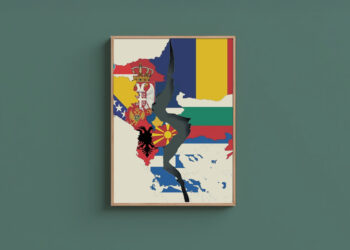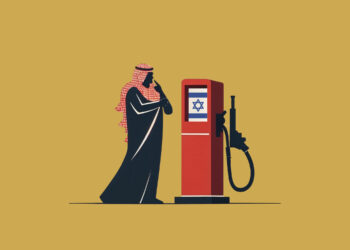Feminism has more than a century of history in North Africa and the Middle East. In fact, if the 16 March 2023 marked the centenary of the establishment of the Ittihad al-Nisa’ al-Misri (The Egyptian Feminist Union, EFU), which was the first independent and explicitly feminist organization in the Arab world, led by Huda Shaarawi Pasha, women’s cultural and social activism for gender equality pre-dates this historical moment.
In fact, women intellectuals participated in the nahda (the Arab Renaissance) from its first inception, in the late nineteenth century. Since then, both creative writing and journalism have mediated women’s participation in the public debates, overcoming the limitations imposed by conservative contexts marked by gender inequality, and they have shed-light on the tight nexus between the private and the political spheres.
Throughout the Twentieth century, women have been part of all the anticolonial and nationalist movements that developed across the West Asia and North Africa region, sometimes assuming leadership roles. They participated in the postcolonial political formations across the whole political spectrum, from Liberal, Marxist to Islamist, and they brought their feminist views to the grassroots movements they were part of, including student, labour, and human rights movements.
Women have been praised but also criticised for their political activism. The state tried to co-opt some of them, to censor, jail, kill and exile others. Women political activists in the Arab world and the broader WANA have negotiated delicate balances between independence and influence in very difficult spaces, demonstrating that the binary between co-optation and resistance does not always reflect the reality on the ground.
In contexts deeply marked by the long-term consequences of historical (and, in the case of Palestine, ongoing) colonialism, by multiple wars and displacement, and by the violence generated by the alliance between authoritarian postcolonial regimes and global capitalism, women’s movements have obtained important achievements (especially the acknowledgment of political rights), but they acknowledge that there are still areas that need improvement (such as the reform of the Personal Status Law) and over time there have been recurrent setbacks.
One could say that every geo-political crisis has been marked by a revival of the discourse about women, the control over their bodies, their rights, their role in the public sphere and indeed their freedom.
This dossier builds on the legacy of this long tradition of WANA women struggles. A fight for equality that intersected multiple plans, and that often transcends women’s rights, embracing broader objectives.
The essays collected in this dossier show the strict link between intellectual production and grassroots activism that characterize contemporary feminism across the WANA, and together they articulate the necessity of questioning generic definitions of feminism, a word behind which one should read multiple and diverse theories, praxes, and aspirations.
There is not a “one-size-feminism” and even the word feminism (generalised in Arabic language as niswiyya not earlier than the 1990s), is not universally and unanimously adopted by women intellectual and political activists with reference to themselves. As one of the authors of the essays included in this dossier, Farah Youssef, explains, in her impressionistic self-reflective piece, feminism is a way of looking at the self and the world that needs to be situated not only historically, politically, and geographically: it is also a very personal experience, whose significance and meanings evolve over the span of a lifetime.
There are multiple feminist subjects in one single person, corresponding to the multiple ways a woman activist evolves from the times when she is a student in a high school under an authoritarian regime, to the revolutionary moment, to the times of exile. Different positionalities, different stages in one’s life, different priorities all together impact the way a woman think of feminism.
Feminism is a vision that can change the way we think not only of gender relationship, power structures, family relationships, it can also inspire a critique of the same framework of law. In doing this, our authors are in a productive conversation with other contemporary feminist authors from the Global South.
Salma El- Tarzi’s essay, which focuses on Egypt, questions the frame of law in relation to her own and her comrades’ experiences of denouncing sexual harassment and rape, and she invites to rethink the legitimacy of a juridical system that questions the narratives of the victims/survivors rather than the rapists. “Feminism can save your life” affirms Henda Chennaoui, as she recalls the experience of revolutionary women in Tunisia. An experience of excitement in the days of the revolution, that turned into grief after the premature passing of Lina Ben Mhenni, who was a point of reference for the entire revolutionary movement, at the point that her family and comrades decided to establish a feminist school in her memory, a fertile memory that is not simple memorialization, but that aims to change the life of the young women participating in the project.
In the words of the contributors to this dossier, feminism means connection to the land and the ancestors, a connection that inspires experiences of agroecology and food sovereignty, as documented by Walaa Al Qaisiyya in her interview with the Palestinian environmental activist Lina Isma’il. Throughout this interview we learn how Palestinian women’s intergenerational struggles have shaped the new generation’s interest in agroecology and food sovereignty as a liberatory project. In this process young Palestinian activists claim their Indigeneity and question the modernist models of “female empowerment”, which were embedded in the expansion of global capitalism.
From Tunisia, to Egypt, Palestine, and Algeria, the multiple experiences narrated in the pieces of this dossier allow us a deeper understanding of the ongoing protests in Iran, and allow the reader to read women’s protagonism in the Iranian revolutionary uprisings that erupted in September 2022 as the most recent chapter of a long history of intersectional mobilization.
Bahar Oghalai’s interview with Jiyan Group (a feminist group that emerged from the political and social activities of a number of activists in Iran after the Women-Life-Freedom-Revolution) highlights that this movement comes on the shoulder of a long tradition of struggle and, at the same time, it has new characteristics.
The most important distinction is the link between the women’s question and the entire liberation struggle of the people in Iran. The interview invites the reader to look at the revolutionary movement in Iran from a broad perspective, and it highlights how people’s demands are articulated along multiple lines, intersecting gender with class, race, and anti-nationalism. They suggest the need to look closely to this feminist struggles and their intersection with the struggles of national, ethnic, and religious minorities, concluding with a statement that we find relevant to the entire area, and, perhaps, the world, when they affirm that “this is a crucial moment for the women’s movement, which can overcome its own limitations, especially the burdens of nationalism and racism”.
Together, the pieces collected in this dossier aim at looking at the ideas and the praxes developed by feminists across WANA over the twelve years that separate the 2010 and 2011 Arab uprisings from the 2022 revolutionary uprising in Iran. Throughout a series of intervention produced by feminist activists and intellectuals of the new generations, we hope they will shed some light on the political visions of women political activists and intellectuals.
We hope they will allow a broader discussion in the role played by non-institutional or government figures, exploring feminism as a set of ideas produced in the intersection of theory and praxis experienced by independent women’s movements, who operate at the margins of the political institutions, producing theories that not only shape contemporary Arab and WANA feminism but contributes to the substance and form of global feminism in the 21st century.








